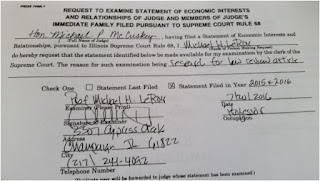Today’s Wall Street
Journal features union members in Pennsylvania who support Donald Trump.
The gist of the article is here:
The
appearance won him (Trump) kudos from Monessen’s Democratic mayor, Lou
Mavrakis, who says he is leaning toward voting for the Republican. “Trump is
reaching the people,” says the 78-year-old former union organizer. “He’s giving
them some hope. If you don’t have the Democratic Party coming here and offering
something, what are we going to do?”
Here is a Wikipedia summary of
Hitler’s use of the German Workers' Party to create his Nazi Party, and
power grab for a dictatorship (the following are quotes from “German Workers
Party”):
DAP was a
short-lived political party and the forerunner of the National Socialist German
Workers' Party, commonly referred to in English as the Nazi Party. The DAP only
lasted from January 1919 to February, 1920.
The DAP was
founded in Munich in the hotel "Fürstenfelder Hof" on January 5, 1919
by Anton Drexler. The members met periodically for discussions with themes of
nationalism and antisemitism directed against the Jews. Drexler was encouraged
to form the DAP in December 1918…. Drexler's wish was for a political party
which was both in touch with the masses and nationalist. In January 1919 with
the DAP founding, Drexler was elected chairman and Harrer was made "Reich
Chairman", an honorary title.
….
While monitoring the activities of the DAP,
Hitler became attracted to founder Anton Drexler's anti-Semitic, nationalist,
anti-capitalist, and anti-Marxist ideas. While attending a party meeting at the
Sterneckerbräu beer hall on September 12, 1919, Hitler became involved in a
heated political argument with a visitor, a Professor Baumann, who questioned
the soundness of Gottfried Feder's arguments against capitalism….
In
vehemently attacking the man's arguments he made an impression on the other
party members with his oratory skills and, according to Hitler, the
"professor" left the hall acknowledging unequivocal defeat. Impressed
with Hitler, Drexler invited him to join the DAP. Hitler accepted on September
12, 1919.
…. After
giving his first speech for the DAP on October 16 at the Hofbräukeller, Hitler
quickly became the party’s most active orator. Hitler’s considerable oratory
and propaganda skills were appreciated by the party leadership as crowds began
to "flock" to hear his speeches during 1919 and 1920. With the
support of Anton Drexler, Hitler became chief of propaganda for the party in
early 1920. Hitler preferred that role as he saw himself as the drummer for a
national cause. He saw propaganda as the way to bring nationalism to the public.























